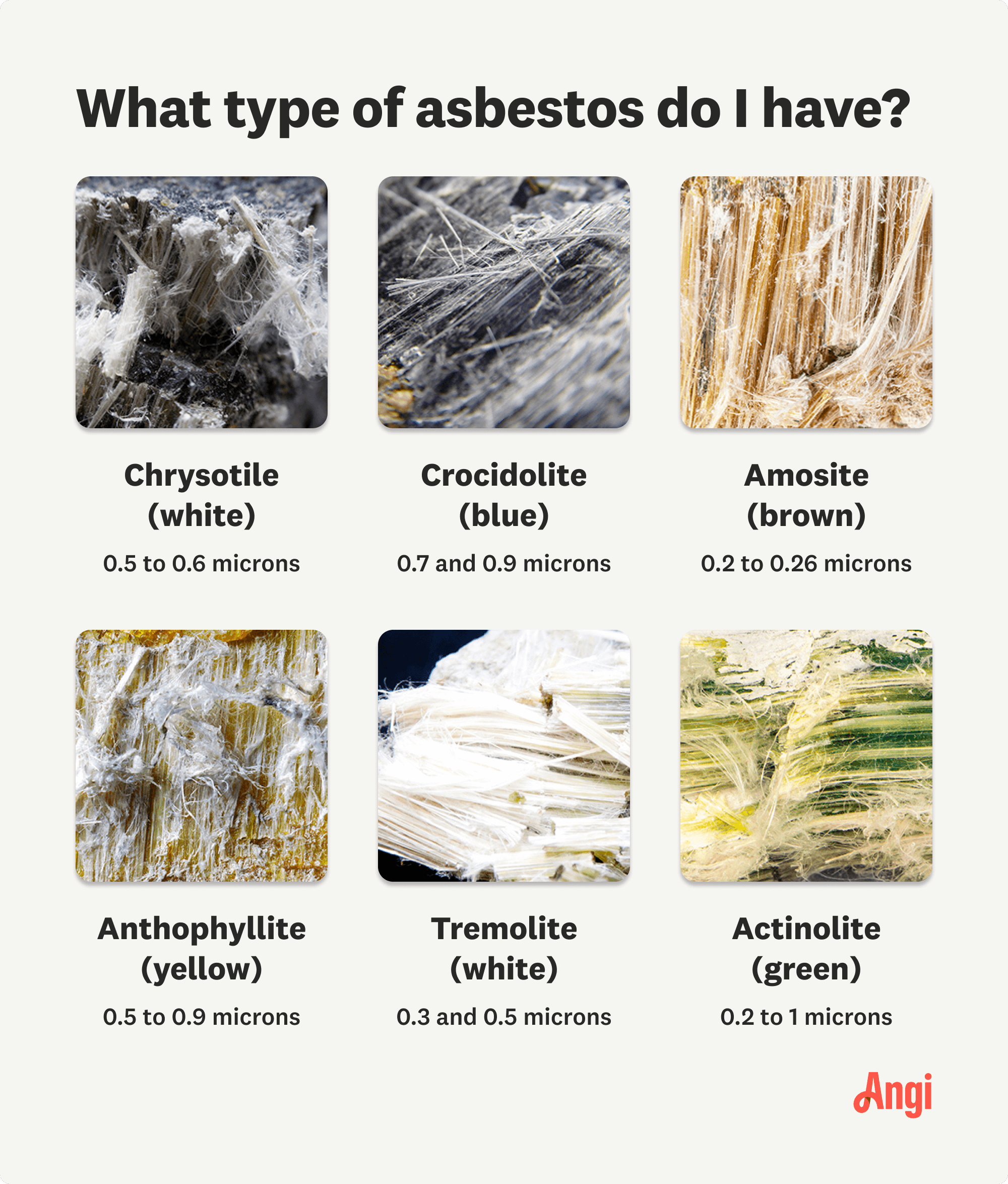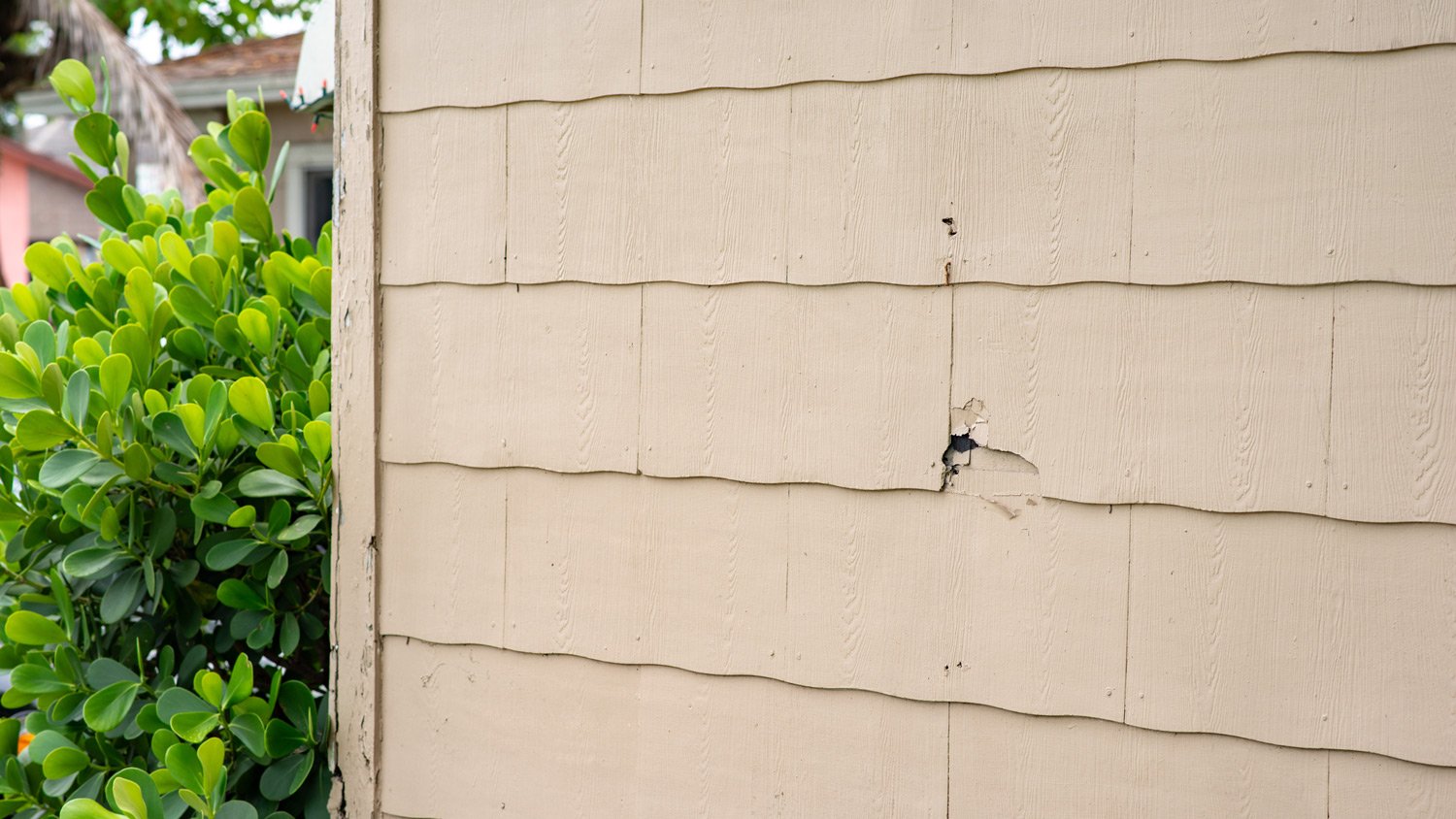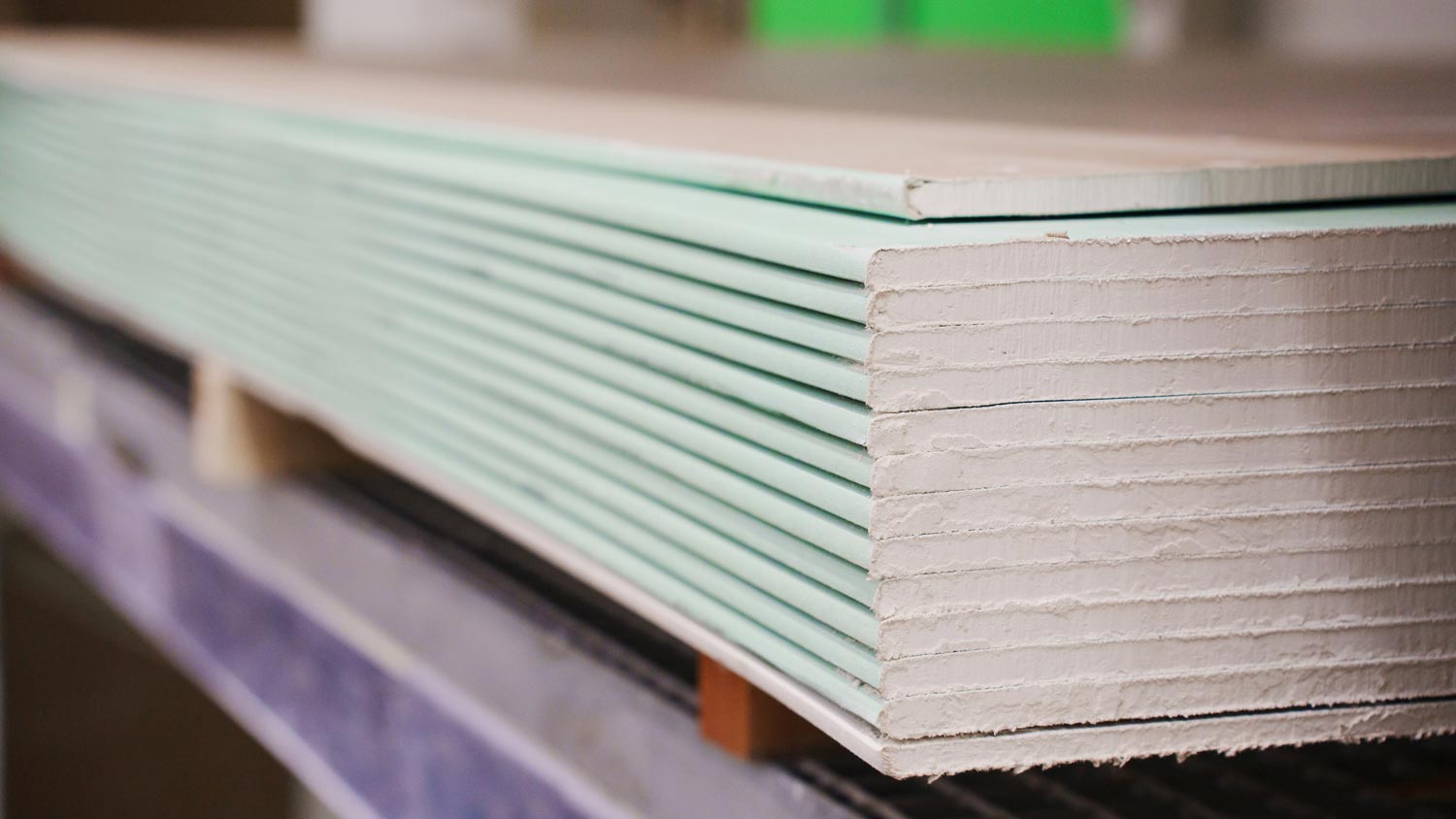How Much Does Asbestos Removal Cost? [2025 Data]
The average asbestos removal cost is $2,211, but typically ranges from $1,190 to $3,255 based on your pro’s removal process.


Asbestos removal experts charge by the square foot, though prices range depending on its location.
Roof and HVAC duct asbestos removal costs the most due to their complex accessibility.
Additional fees include the cost of permits and disposal fees, which can add up to $150.
Handling or removing asbestos is not a DIY task and always requires a trained professional.
Asbestos removal costs $2,211, on average, and can range between $450 and $6,000 depending on the specific removal process, amount of asbestos present, repairs that need to occur, and size of the space. Expect to pay about $5 to $20 per square foot.
Asbestos, a carcinogenic material, was banned in 1989 under the Toxic Substances Control Act (TSCA). So depending on how old it is, your home might contain asbestos. This guide breaks down all the cost factors you need to know about removing this hazardous material.
Asbestos Abatement Cost Factors
The cost of asbestos abatement varies due to several factors. You'll pay more or less depending on how much asbestos requires removal, the type of asbestos present, the material types involved, the location in the home, and how easily the asbestos is to reach and remove.
Size of the Affected Area
An indoor asbestos remediation project costs between $5 and $20 per square foot, depending on the location. The bigger the space, the more you'll pay. Removing asbestos from exterior locations, like a roof or siding, costs $50 to $150 per square foot. Whole-home remediation costs $5,700 or more.
| Interior Square Footage | Average Removal Cost |
|---|---|
| 100–200 | $1,250–$2,500 |
| 200–400 | $2,500–$5,000 |
| 400–600 | $5,000–$7,500 |
| 600–1,000 | $7,500–$12,500 |
Type of Asbestos

The removal process is similar for all types and colors of asbestos, but some fibers are smaller than others, requiring greater attention to detail during setup and removal. There are three common asbestos types, each with its own quirks and removal costs.
Chrysotile (white): This is the most common asbestos, with fibers ranging from 0.5 to 0.6 microns. Due to its abundance, this is the most budget-friendly type of asbestos to remove.
Crocidolite (blue): This is the most dangerous asbestos. Its fibers are between 0.7 and 0.9 microns. Since this is such a dangerous type of asbestos, costs rise slightly to meet the proper guidelines. Count on a slight cost increase of around 5% for a removal project.
Amosite (brown): This asbestos is rare and the only type that can pass through most high efficiency particulate air (HEPA) vacuums. The fibers range from 0.20 to 0.26 microns in size. Due to their smaller-than-average size, removal specialists must practice caution to avoid accidental inhalation, which increases the cost by around 5%–10%.
Anthophyllite (yellow-brown): The amphibole fibers in this asbestos are more dangerous because they’re smaller and shorter, making it easier to infiltrate respiratory systems. Anthophyllite is rare and not commonly found in commercial products.
Tremolite (white-dark green): Tremolite is another form of asbestos made of amphibole fibers. It’s more common than anthophyllite and amosite and is primarily found in building materials like paint, roofing tiles, and insulation.
Actinolite (white, gray, or green): Actinolite is another type of asbestos commonly found in insulation and other building materials like cement and certain sealants. This one also contains amphibole fibers.
Disposal Fees
Asbestos is regarded as hazardous waste, and disposal must follow Environmental Protection Agency (EPA) guidelines. Costs vary from state to state, but disposal costs about $10 to $50 per cubic yard and $50 to $100 for the permit.
Cost of Asbestos Removal by Location in a Home
It costs less to remove asbestos from accessible locations, while inaccessible locations may require demolition and extensive sealing. For example, to remove asbestos from a floor pipe spanning three rooms, each room will need to be sealed off, and you’ll have to use multiple negative air fans—and that is before demolishing the floor. If a pipe of similar length is in an exposed basement, you’ll have to seal off the basement, but demolition is not needed.
| Asbestos Location | Average Removal Cost |
|---|---|
| Walls and drywall | $8–$13.50 per sq. ft. |
| Attic insulation | $11–$25 per sq. ft. |
| Roof and shingles | $50–$120 per sq. ft. |
| Siding | $3–$15 per sq. ft. |
| Flooring and floor tile | $5–$15 per sq. ft. |
| Pipe insulation | $5–$15 per sq. ft. |
| HVAC ducts | $35–$55 per sq. ft. |
| Basement | $5–$20 per sq. ft. |
| Popcorn ceilings | $9–$20 per sq. ft. |
| Wire insulation | $90–$225 per hour |
Walls and Drywall
You’ll pay about $8 to $13.50 per square foot to remove asbestos from a wall or drywall. For example, removing asbestos from a 1,500-square-foot home will cost about $20,000, but most of the time, you can encapsulate asbestos instead of removing it. Encapsulation, which creates an airtight seal around the asbestos to prevent fibers from releasing into the air, costs $2 to $6 per square foot.
Popcorn Ceilings
Popcorn ceilings are tricky due to the fact that material is on the ceiling and any asbestos can easily rain down and contaminate an entire room. While you can technically encapsulate an entire ceiling, it will make any further work more expensive and time-consuming, as you’ll need to perform asbestos removal anyway. Expect to pay $9 to $20 per square foot for the cost of popcorn ceiling removal.
Attic Insulation
The cost of removing asbestos attic insulation depends on the amount present and its accessibility. There is a wide range of costs, but attic asbestos removal ranges from $11 to $25 per square foot. After removal, installing new insulation costs additional $1,700 to $2,100.
Roof and Shingles
Roofing is one of the most expensive places to remove asbestos due to its difficulty of accessibility. Roof asbestos removal prices run between $50 and $120 per square foot, plus the cost of installing new roofing. The average roof replacement costs $5,900 to $13,150.
Siding
Removing asbestos from siding can cost between $3 and $15 per square foot. Unfortunately, most homes built before 1980 have asbestos in the siding to facilitate fire resistance. Removal is not required in some states, like New Jersey, so modern homeowners often prefer to repair and encapsulate the siding to keep costs low.
Flooring and Floor Tile
Most homeowners pay $5 to $15 per square foot for the cost of removing asbestos from floor tiles. This process requires mechanical removal, but most of the time, homeowners only need to encapsulate the asbestos and cover it with a new floor.
Pipe Insulation
Removing asbestos around pipes costs $5 to $15 per square foot. For wraps, you’re
looking at around $2 to $5 per linear foot. The harder these features are to access, the higher the cost.
Wire Insulation
Wires require insulation because it improves conductivity and lowers the chance of electrical fires. However, wires are small and buried behind walls and floors, so removal may be more complex than it seems.
Professionals will also ensure that pulling wires through walls or floors doesn’t spread more asbestos than necessary. It’s challenging to provide quotes, but general asbestos removal rates apply here, with a slight increase for electrical expertise. Expect to spend about $90 to $225 per hour for this type of wire insulation.
HVAC Ducts
The price to remove asbestos from HVAC insulation varies widely, depending on the extent of the contamination. Removing asbestos from an HVAC costs around $35 to $55 per square foot due to the increased difficulty of accessing the ductwork and working in confined spaces. It’s sometimes more affordable to invest in the cost of a replacement HVAC unit for $5,000 to $12,500 than to bother with remediation.
Basements
Like most rooms, the cost of asbestos removal in a basement depends on accessibility. Finished basements can cost 25% more than unfinished basements because they require more setup and demolition. You can expect basement asbestos removal to cost $5 to $20 per square foot.
DIY Asbestos Removal vs. Hiring a Pro
Although you can save anywhere from $75 to $200 per hour completing asbestos removal or encapsulation yourself, we never recommend it. This job is dangerous, and you’ll need the right safety equipment, a HEPA vacuum, sealant, and a way to dispose of the asbestos properly—all adding to your expenses and safety risk. Not only that, but some local ordinances may ban or restrict DIY asbestos removal. A professional asbestos tester near you can safely test for asbestos in your home. If they find asbestos is present on your property, hiring a local asbestos removal company can save you from serious health risks.
"You may wonder whether it's okay to stay in your home while asbestos mitigation work is underway. Asbestos is a health hazard and is a risk to anyone exposed to the asbestos fibers. While there might be specific times when you can stay in the home during the mitigation process, it is not worth risking the health and safety of your family, leave your home.”
— John Brewster, Owner of True North Home Inspections, LLC
An asbestos removal professional will protect you from potential violations, but beyond that, asbestos is carcinogenic and can affect your health. It’s not hard to inhale asbestos fibers accidentally. When hiring an asbestos removal contractor, make sure they know your state and local laws and can obtain the required licenses and permits.
They should also know the Occupational Safety and Hazards Administration (OSHA) and Environmental Protection Agency (EPA) standards. OSHA requires those supervising asbestos removal to meet the Asbestos Model Accreditation Plan from the EPA, even if it’s not required by your state.
Cost of Common Asbestos Abatement Add-Ons
Not all states require homeowners to remove asbestos siding, allowing for some repairs. The average cost to repair asbestos siding is $700 to $5,000, depending on the size of the area and the specific repair issue. Encapsulating the siding is a more budget-friendly option when local regulations allow it, but for many jobs, a full removal is required.
For other items like ductwork, drywall, and tiles, where encapsulation is not an option, you’ll have to remove the object and reinstall it. Once the asbestos is removed—and you’re ready to install new materials like drywall or flooring—expect the price to be commensurate with that replacement. The table below doesn’t include removal costs.
| Replacement Item | Average Replacement Cost |
|---|---|
| Furnace | $4,735 |
| Air Ducts | $3,500 |
| Drywall | $3 per sq. ft. |
| Roofing | $9,250 |
| Exterior painting | $3,150 |
| Pipe replacement | $1,200 |
How Much Does Asbestos Encapsulation Cost?
Since encapsulation saves on demolition and disposal costs, it’s 15% to 25% less expensive than removal. The encapsulation process costs $2 to $6 per square foot, and encapsulation quality sealant costs about $115 per gallon.
How to Save Money on Asbestos Abatement
While performing asbestos abatement on your own is highly discouraged as a way to save on removal costs, there are a few ways you can help control the costs associated when hiring a professional to handle the situation.
Local and state governments often provide financing assistance for homeowners who need asbestos abatement. While these grants and other programs won't likely eliminate your costs completely, they can help to reduce the total price you'll pay for the work.
If your state and municipal building code allows encapsulating asbestos in specific situations, it's worth considering and can reduce your abatement costs by up to 25%.
Hire a third-party asbestos inspector to perform an asbestos inspection instead of relying on the word of your removal company. Provide the report to the contractors you interview for the removal portion of the job. Doing so reduces the chances of being overcharged for unnecessary work.
Handling asbestos is extremely dangerous and involves serious health risks. An asbestos removal company can get the job done as safely as possible so you can start that remodel you’ve been planning.
How Angi Gets Its Cost Data
Home is the most important place on earth, which is why Angi has helped more than 150 million homeowners transform their houses into homes they adore. To help homeowners with their next project, Angi provides readers with the most accurate cost data and upholds strict editorial standards. We’ve surveyed thousands of real Angi customers about their project costs to develop the pricing data you see, so you can make the best decisions for you and your home. We pair this data with research from reputable sources, including the U.S. Bureau of Labor Statistics, academic journals, market studies, and interviews with industry experts—all to ensure our prices reflect real-world projects.
Want to help us improve our cost data? Send us a recent project quote to costquotes@angi.com. Quotes and personal information will not be shared publicly.
Frequently Asked Questions
Currently, there is no federal licensing mandate for asbestos removal contractors. However, certain cities and states require certification and specialized training. For example, in New York, those handling asbestos must receive an Asbestos Handler Certification. The mandates dictating the necessary training or certifications vary based on state and local laws.
Homes built before the 1990s may contain asbestos, but the only way to be sure is to have your home tested. Hire an asbestos testing and removal service to determine whether you have the hazardous material in your home and the best process for removing or sealing it.
Federal law doesn’t require homeowners to disclose the presence of asbestos in their home, but some states and local municipalities may require it. That is why it’s important to test an older home for asbestos and other health hazards before moving forward with a sale.
Asbestos, even when properly removed, can seriously affect the resale value of a home. The presence of asbestos can be a “kiss of death” for realtors and sellers, as buyers tend to flee at the first mention of the carcinogenic mineral. The proper way to deal with asbestos—as you must disclose its presence in most places—is to have a professional remove it and sign off on its safety. Otherwise, expect the presence of asbestos to devalue a home in the range of 1% to 15% or more.
Federal and state grants for asbestos testing and removal do exist and can help homeowners with the associated costs. In some cases, local housing grants help homeowners who have to remove asbestos as part of home repairs. The U.S. Environmental Protection Agency (EPA) also provides funding to help schools manage asbestos removal, but it doesn’t extend to homeowners.
















